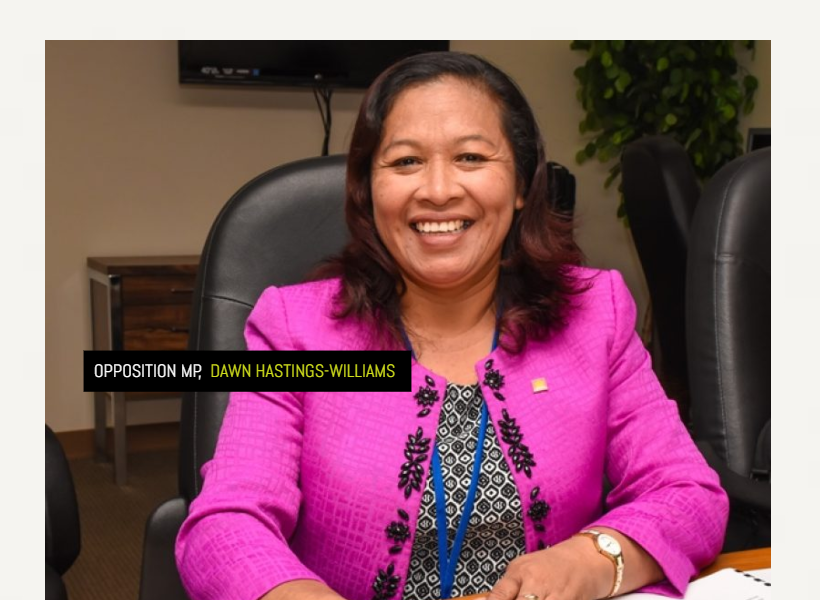The government’s part-time job initiative will better serve Guyana’s working class if it is repurposed to provide stipends to citizens desirous of enhancing their skillsets, says A Partnership for National Unity + Alliance for Change (APNU+AFC), Member of Parliament (MP), Dawn Hastings-Williams.
During the budget debates on Wednesday, the lawmaker noted that the programme, in its current construct, will only pigeonhole employees in a perpetual state of dependency, whereas the stipend will allow them upskilling opportunities to better take advantage of the myriad of openings that stem from the country’s expanding oil and gas sector.
The government launched its part-time job programme last year and was among the suite of measures implemented to cushion the rising cost of living. The programme allows one person per household to work in public offices in close proximity to their homes for 10 days per month with a fixed salary of $40,000. Over 11,000 persons were employed through the programme in Regions Two, Three, Five, Six, Nine and 10, injecting a reported $2.3B into households reeling from the high cost of living. The programme will benefit this year from a proposed $10 B allocation.
Turning her attention to cash grants, the MP lamented the “discriminatory and haphazard manner” way in which monies are disbursed.
She noted that while the main Parliamentary Opposition is not against cash grants, it must be done in a structured way that leads to further empowerment of the working class.
“They continue to dole out a cash grant here and a cash grant there; here a cash, there a cash, everywhere is a cash grant. We on the opposition side would like to propose a people-centered vision of development for cash grants. We are not against cash grants, [but] we must see cash grants as a mechanism with multiple uses. We believe that when structured effectively and delivered in a predictable manner, citizens’ lives can be transformed,” she told the House.













